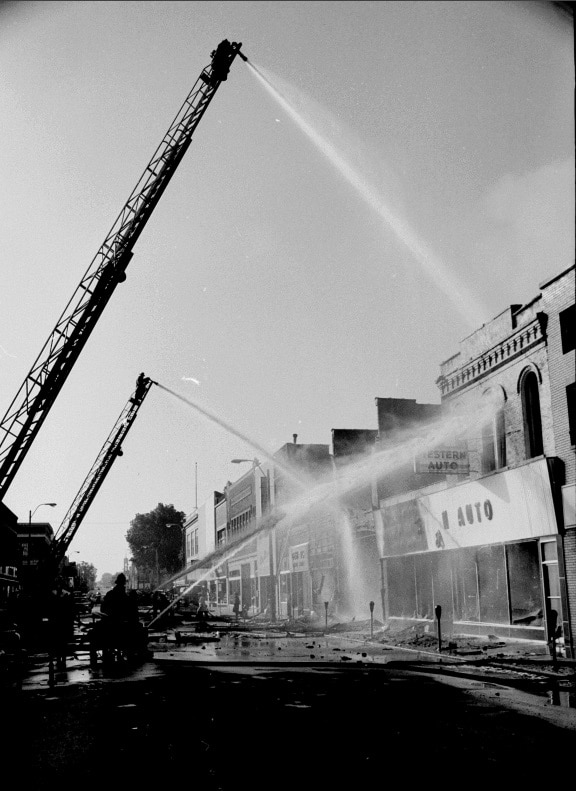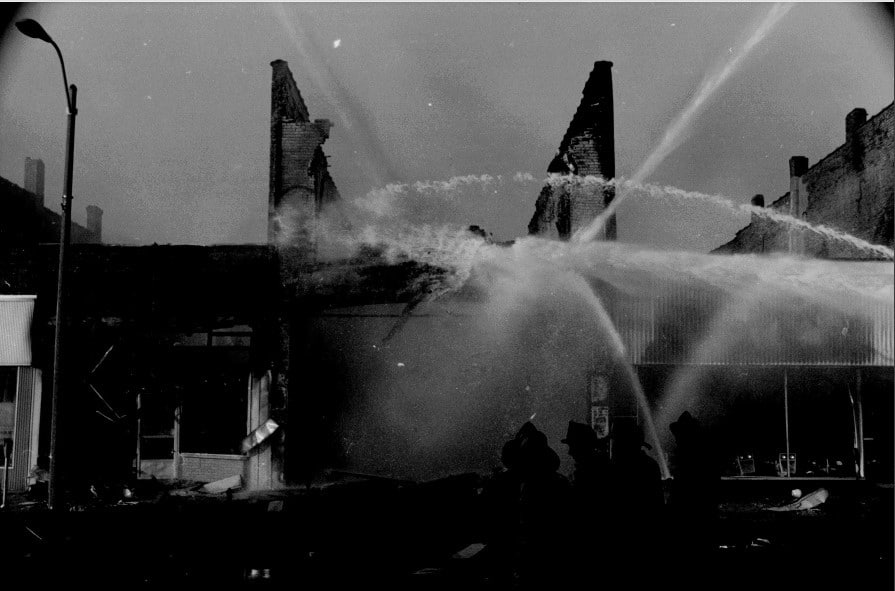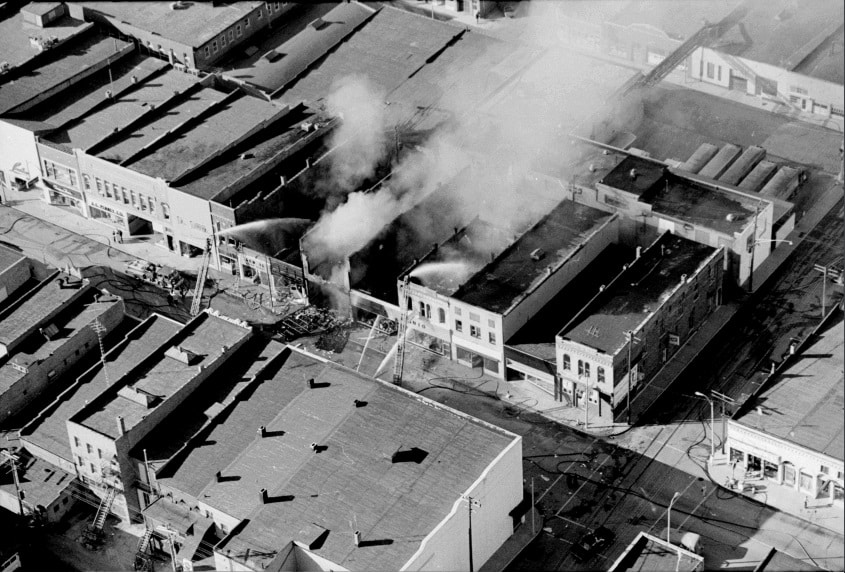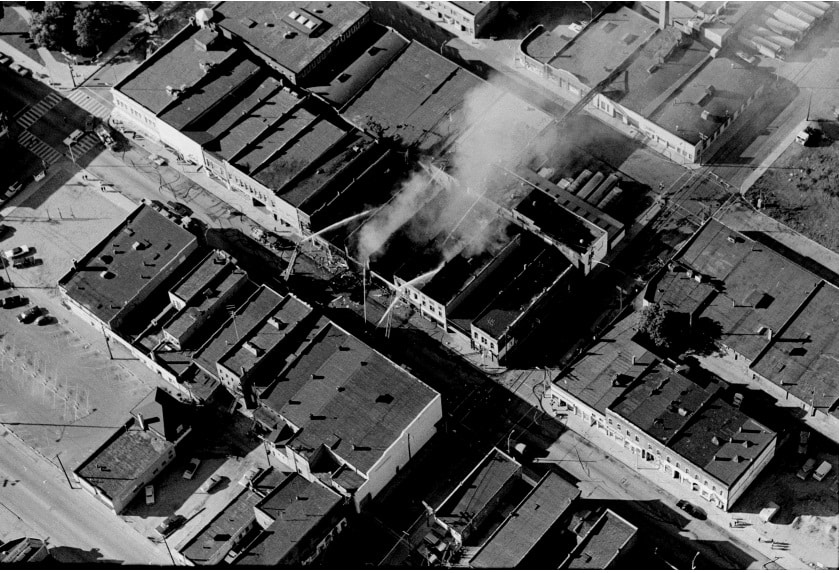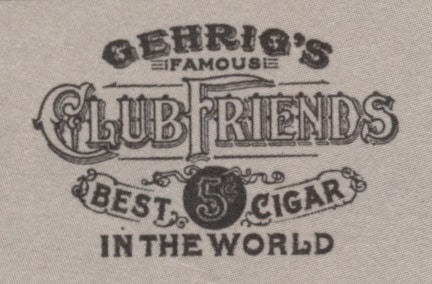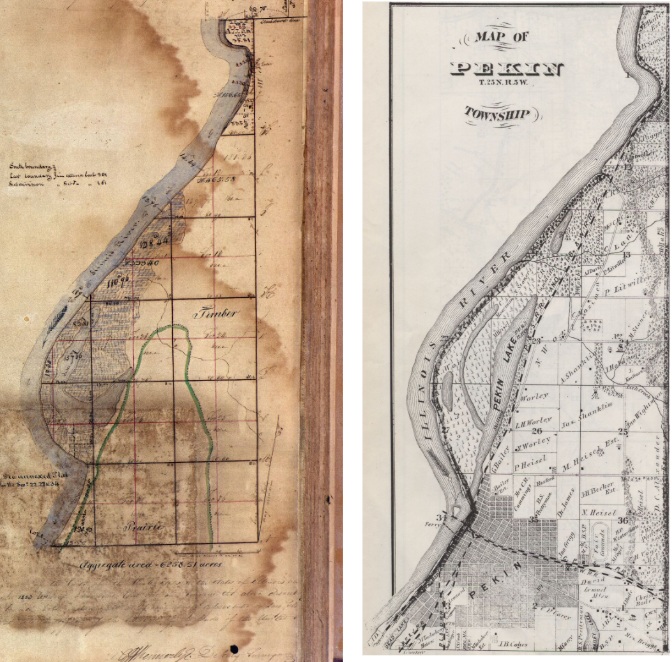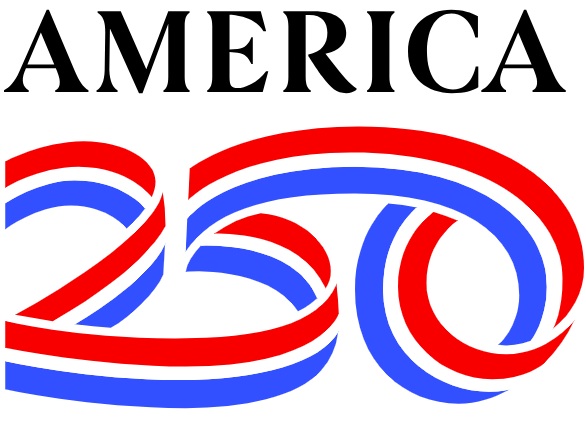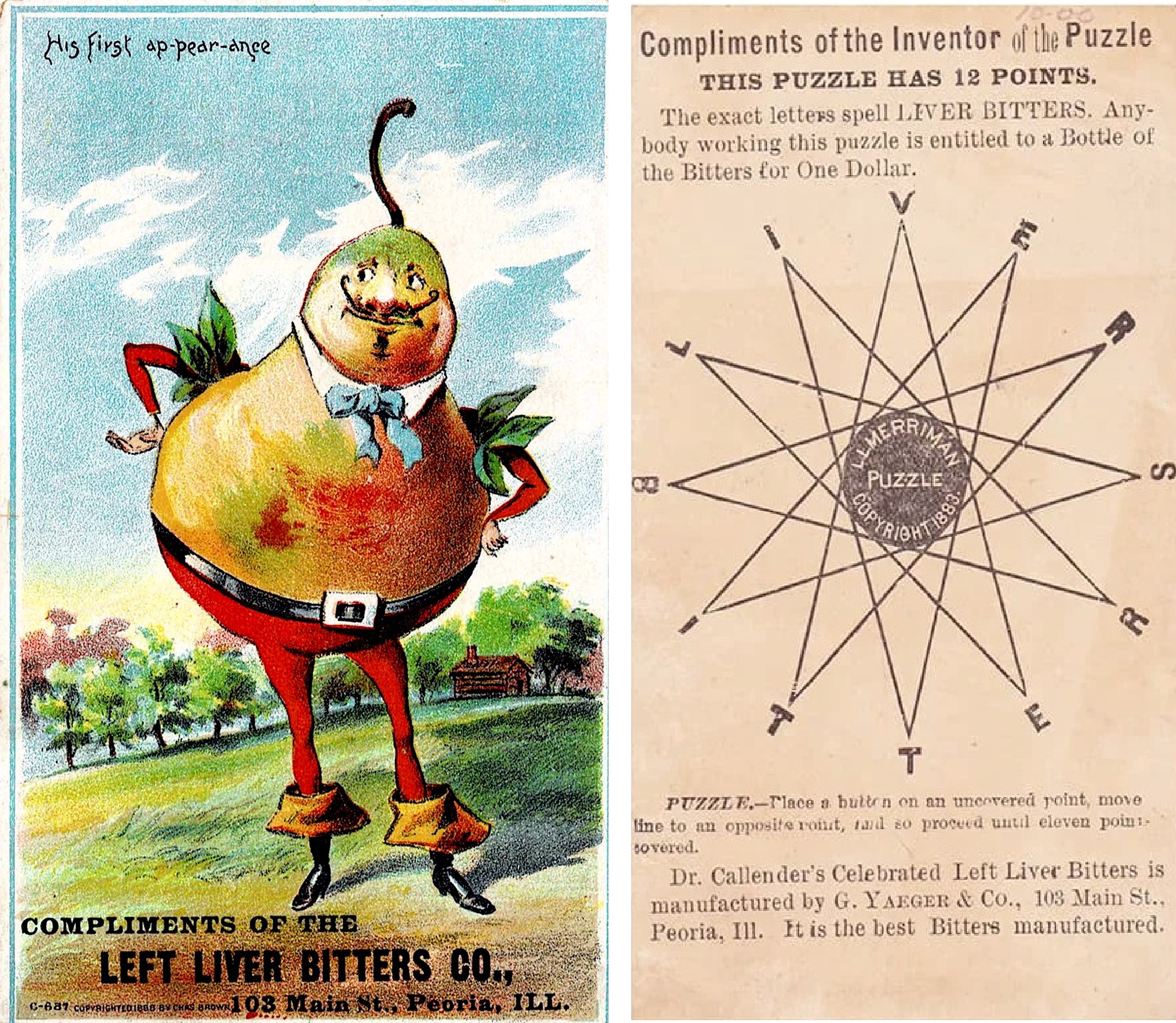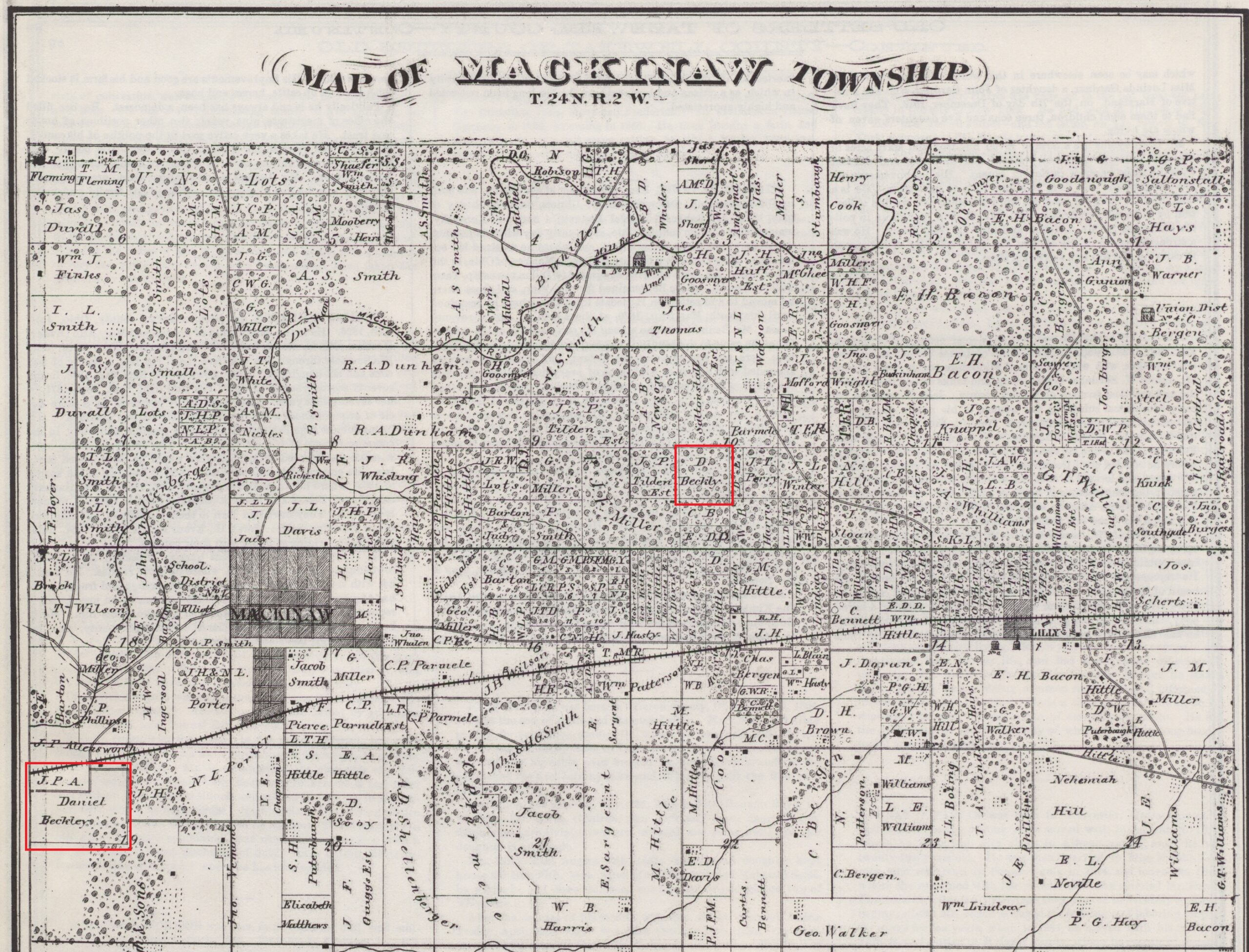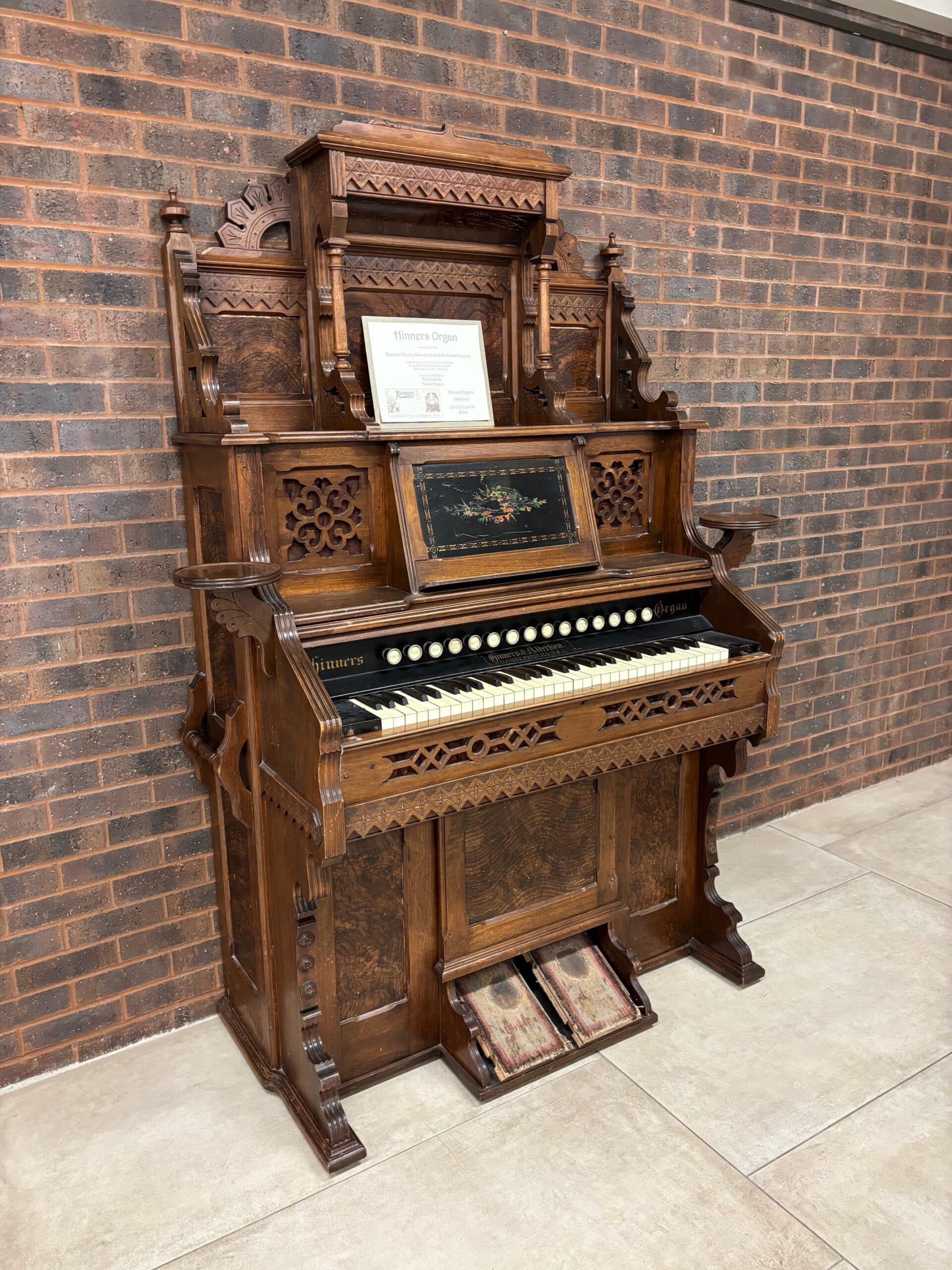In days gone by, well before the Surgeon General’s warnings about the dangers of smoking, Pekin was home to a remarkable number of cigar stores and cigar factories. This week we’ll briefly review some of Pekin’s cigar store history, and also recall in particular the story of Gehrig’s Cigar Store and Gehrig’s band, both founded by a German immigrant and Union Army Civil War veteran named Edward C. Gehrig (1833-1901).
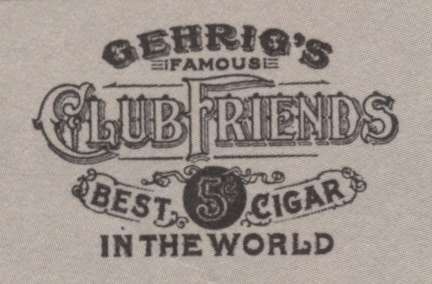
Gehrig’s outlived all of the competing Pekin cigar dealerships (one of which, as we saw last week, was the Arlington Cigar Shop) and was a landmark of downtown Pekin, operating in or near the lower 300 block of Court Street from 1865 to 1971. Gehrig’s Cigar Store is one of four of Pekin’s old cigar shops and factories mentioned on page 138 of “Pekin: A Pictorial History” (1998, 2002):
“Cigar manufacturing, snuff and smoking supplies were big business in Pekin until 1971, when the last family business was destroyed by fire. A distinctive feature was the wooden Indian which adored storefronts such as the one owned in 1904 by Alfred Hascher (sic – Haschert) . . . Another well-known cigar shop was Gehrig’s (who had been invited to bring his cigar manufacturing plant to Pekin in order to attract his famous marching band). Also, L. C. Toels (sic – Toel) and his son, John, operated a manufactory and store at 8 South 2nd in 1903. And who could forget Fred Moenkemoeller’s Cigar Store at 409 Court Street in the 1940s and ‘50s? (He was the character who once rode his horse into a Pekin Country Club Dance on Halloween!).”
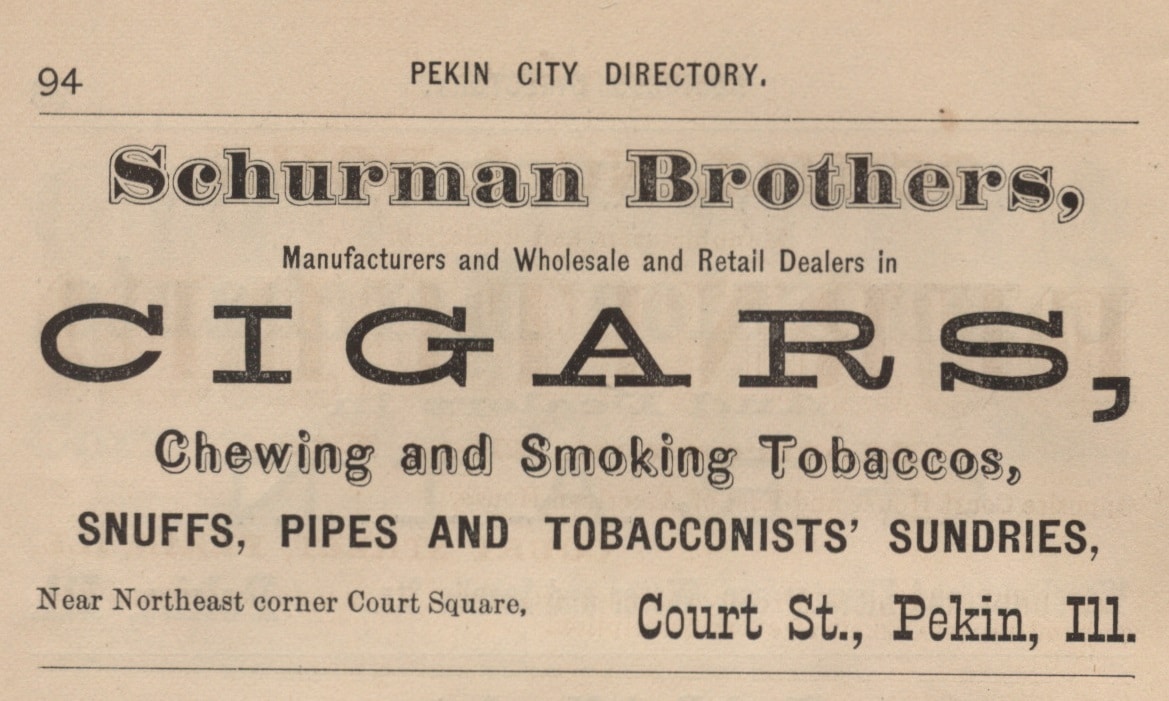
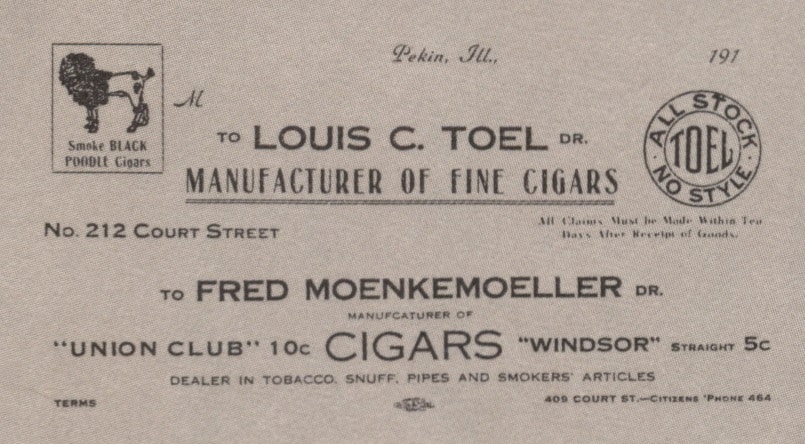
Here at “From the History Room,” we have previously noted that Charles Ashby, a son of Pvt. William J. Ashby of the 29th U.S. Colored Infantry, is shown in the 1887 Pekin city directory working as a cigarmaker at the Moenkemoeller & Schlottmann cigar factory.
Another list of Pekin’s old cigar dealers and manufacturers is provided by the late Roy Preston in his “The Old Timer Recalls” column that ran in the 7 April 1977 edition of the Pekin Daily Times. One of Preston’s informants was Herb Johnson, who worked in Moenkemoeller’s Cigar Store in the early 1900s. Preston says:
“Some of the cigar manufacturers known to Mr. Johnson were Charles Gehrig, George Behrens, who became Pekin’s City Treasurer; George Bruder, the other half of Stein and Bruder’s orchestra; Al Haschert, John Kuss, Theodore Miller, Louis Toel, George Vogel, Nelson Sheppert, John Flath, William Gleich, Joe Shuttlesworth, Adam Hofferbert, Gus Schueler, Conrad Liescheidt, George Vogelsang, Kickler and Diekman, Carl Knigge and Fred Moenkemoeller. Cigarmakers were hired by most of these men.”
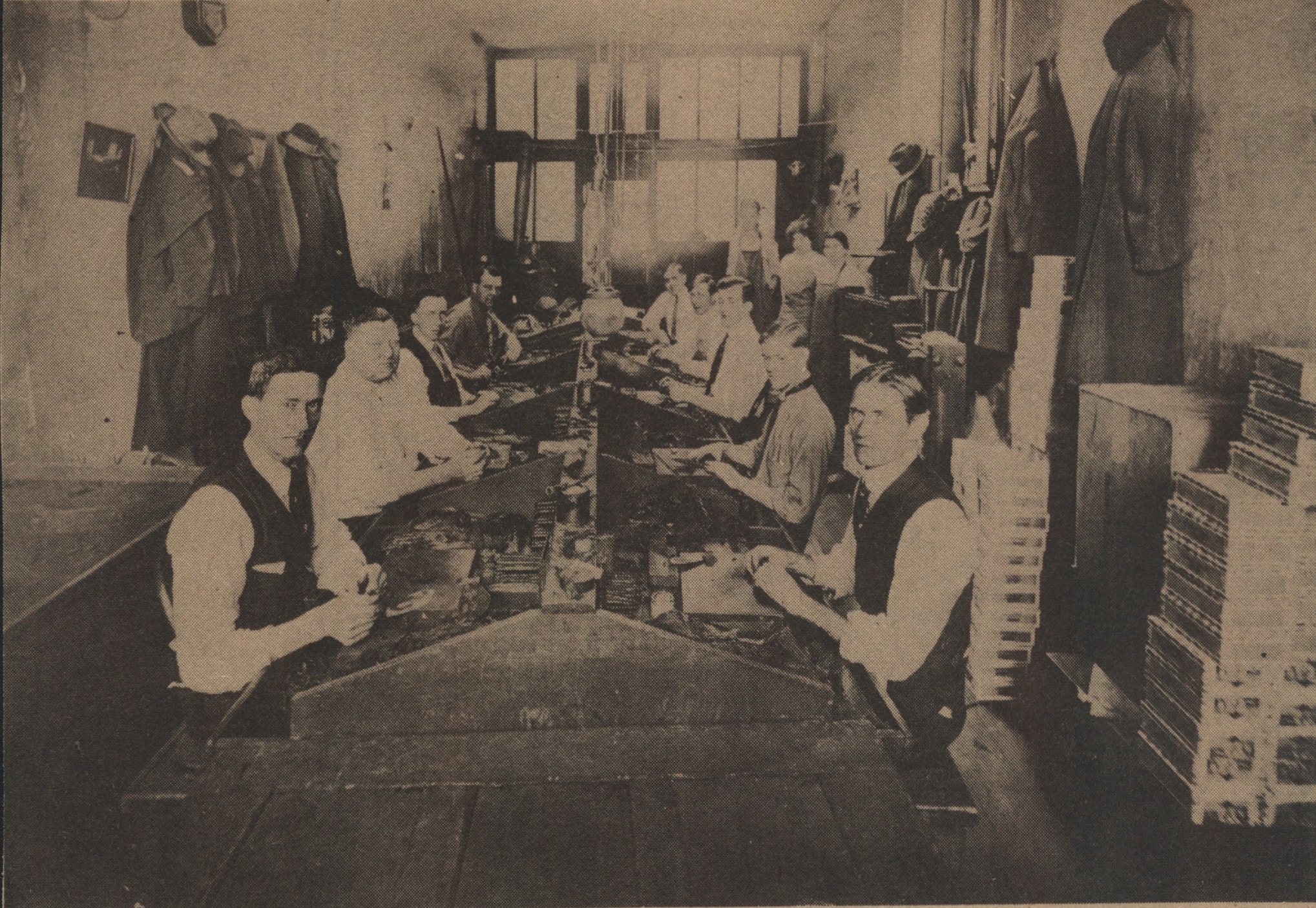
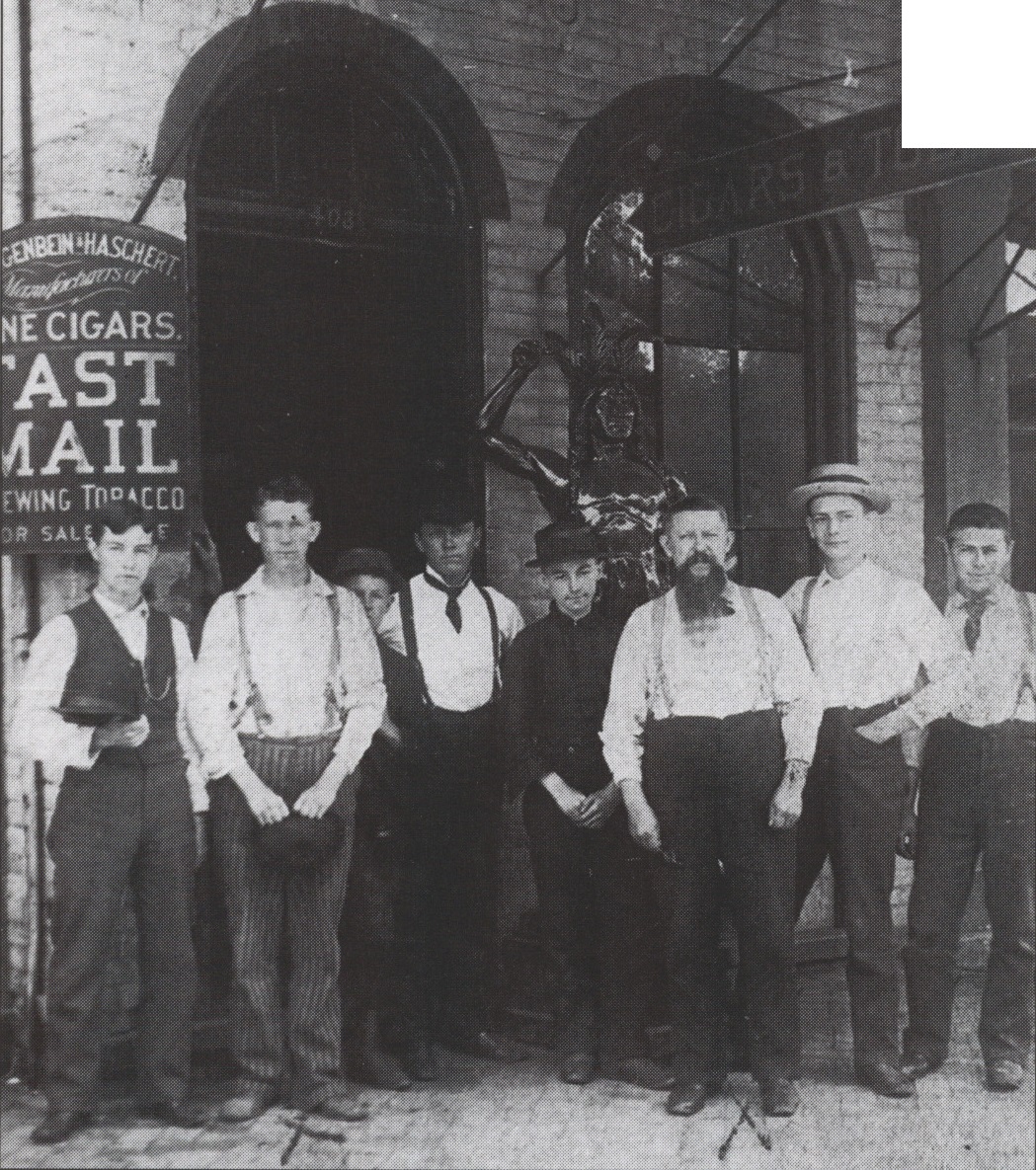
Charles F. Gehrig (1859-1941) was the son of Edward Gehrig, both of whom in their turn served as band leaders of Gehrig’s band. In fact, several of the cigarmakers whom Johnson remembered were also members of Gehrig’s band, along with a few other downtown businessmen. The story of Gehrig’s band is told in the 1949 Pekin Centenary on page 123 (also being repeated essentially verbatim in the 1974 Sesquicentennial):
“Older Pekin residents recall with pride the days of Gehrig’s Famous 7th Regiment Band, an organization which became known throughout Illinois in the late 19th and early 20th centuries. But starting at the beginning, the first Pekin band was organized in 1865 by Edward Gehrig, Sr., a civil war veteran cigar maker.
“Before moving to Pekin, Mr. Gehrig had organized a band and an orchestra in Peoria. At that time, there being no orchestra in Pekin, the Peoria music makers were often hired to come down the river to play at dances and other functions. Finally, liking both Leader Gehrig and his enthusiastic interest in music, Pekin lured him away from Peoria to establish his cigar factory here in 1865 – and, incidentally or otherwise, to organize a community band. In 1880 this became known as Gehrig’s 7th Regiment Band, and continued as such until 1925. In 1901, at Leader Gehrig’s death, his son, Charles F. Gehrig, took over and continued as leader for 20 years. Thus, for 56 years, Pekin’s city band was under the direction of a Gehrig.”
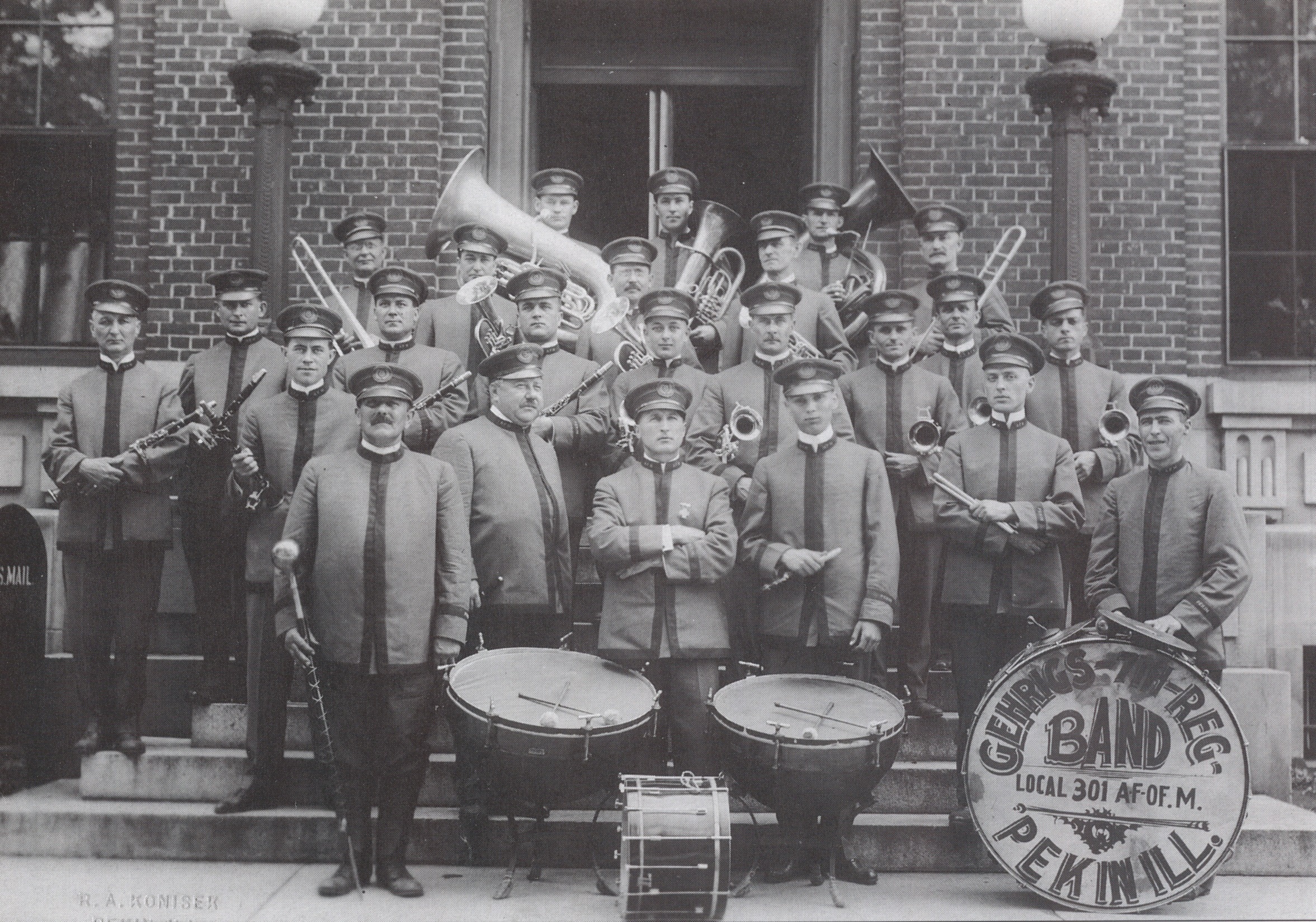
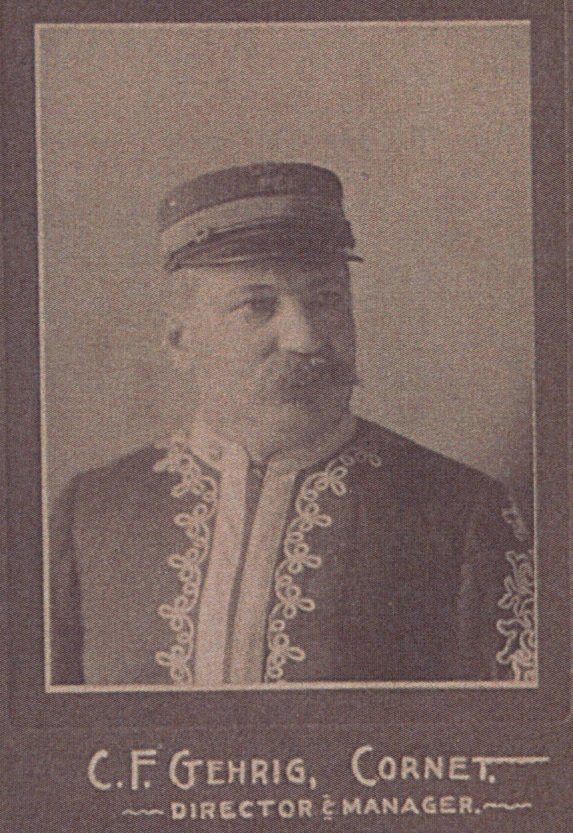
In the late 1850s, Edward Gehrig lived in Chicago, where his son Charles was born. The 1860 U.S. Census shows the Edward Gehrig family living in Northville in LaSalle County, Illinois. By 1862 the Gehrigs were in Somonauk in DeKalb County, where Edward’s daughter Emma was born, and then in 1864 they were in Peoria where the son Edward H. Gehrig was born. In 1870 the U.S. Census shows Edward, a tobacconist, living with his family in Pekin, which indicates that he was then operating his cigar store in Pekin. Curiously, the obituaries of Edward’s son Charles and grandson Robert both mistakenly say Gehrig’s Cigar Store opened in 1872, yet there is no doubt the business had opened before the 1870 census.
Edward Gehrig’s cigar store makes its first appearance in Pekin city directories in 1871, when it was listed in the 1870-71 Sellers & Bates City Directory of Pekin. The same directory lists four other cigar stores and factories that were then in business, most if not all of them on Court Street. Gehrig’s store is listed at the southwest corner of Court and Third, Fred Huisken’s was at the southeast corner of the same intersection, H. O. Stein’s was on the south side of Court two doors east of First National Bank, Schurman Brothers was near the northeast corner of Courthouse Square, and the Day Brothers store (no address given).
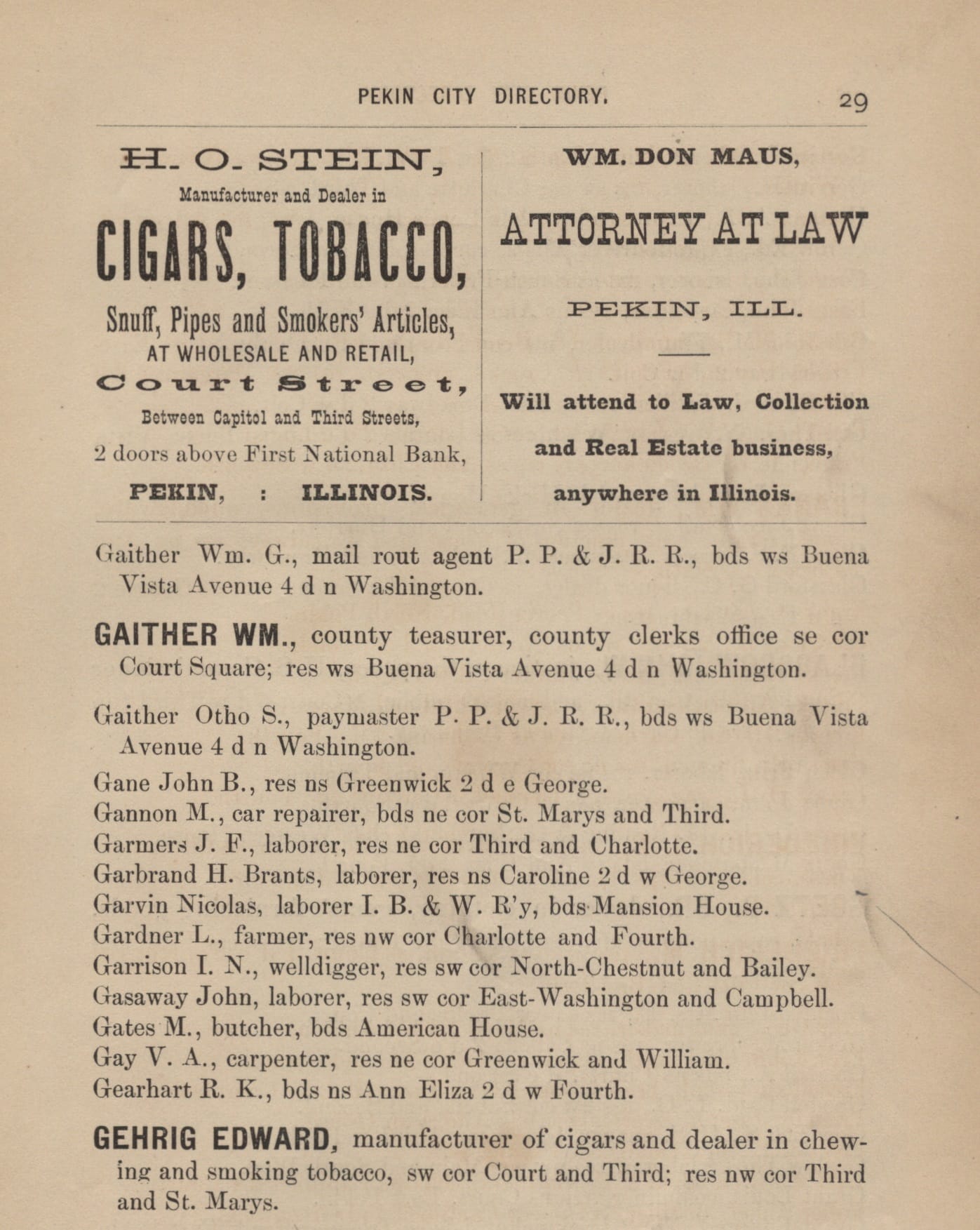
In the 1876 city directory, Gehrig’s Cigar Store is said to be on the east side of Third Street, two doors south of Margaret Street. The directory that year shows four other cigar shops – Moenkemoeller & Schlottman at 513 Court, H. O. Stein at 312 Court, C. F. Stelzner at 320 Court, and H. & J. Weyrich at the southwest corner of Court and Third (where Gehrig’s store was in 1871).
The Sanborn Fire Insurance Maps of Pekin shows that Gehrig’s Cigar Store had moved to 318 Court St., on the south side of the lower 300 block of Court Street, by 1885. The 1892 Sanborn Map again shows the store again at 318 Court St., but by the time of the 1898 map, the store had moved next door to 316 Court. The store remained at that location for the rest of its existence. Most of the buildings in that block were constructed during the 1860s to replace buildings that were destroyed in the Great Fire of 1860.
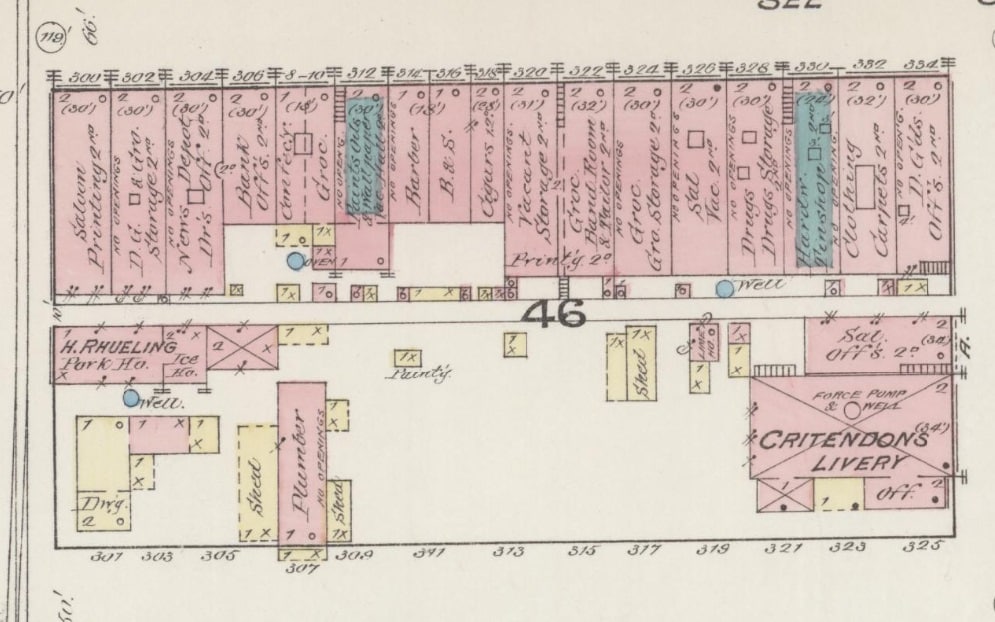
Edward Gehrig passed away on 4 Jan. 1901 and was buried in Pekin’s Lakeside Cemetery. His son Charles carried on the family business for the rest of his life. Charles also served as a member of the Tazewell County Board of Supervisors and a Commissioner on the Pekin City Council, and oversaw the operation of Pekin’s street car system.
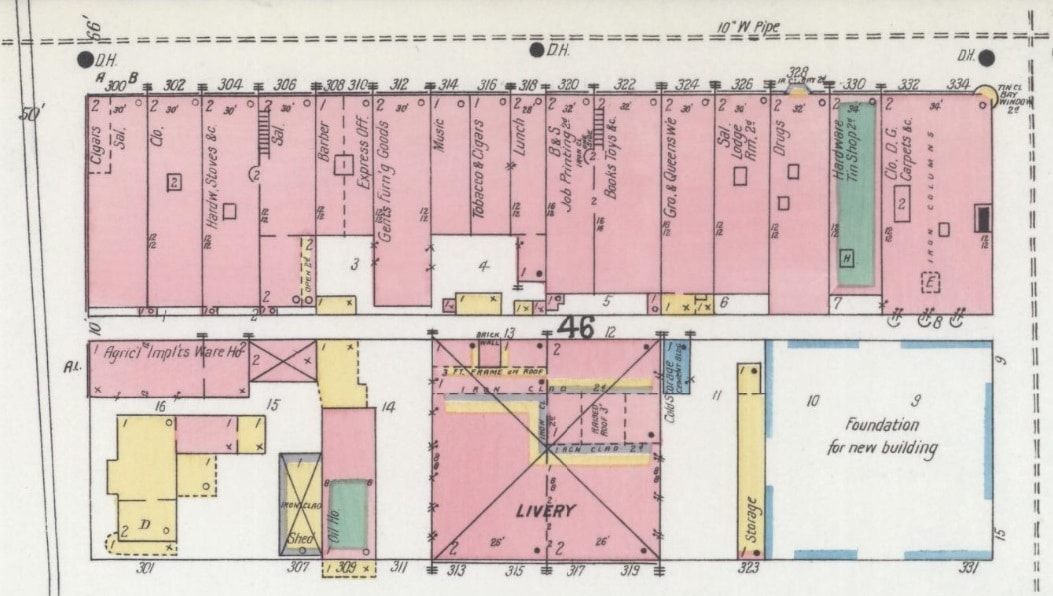
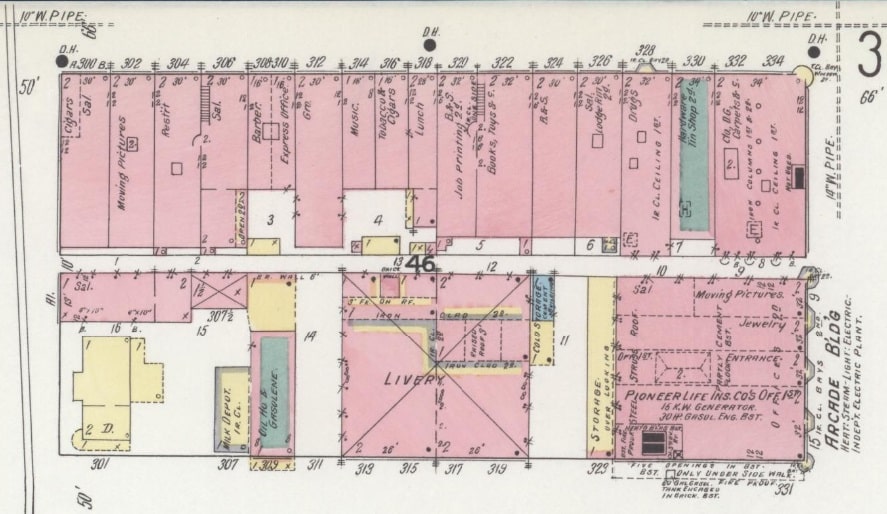
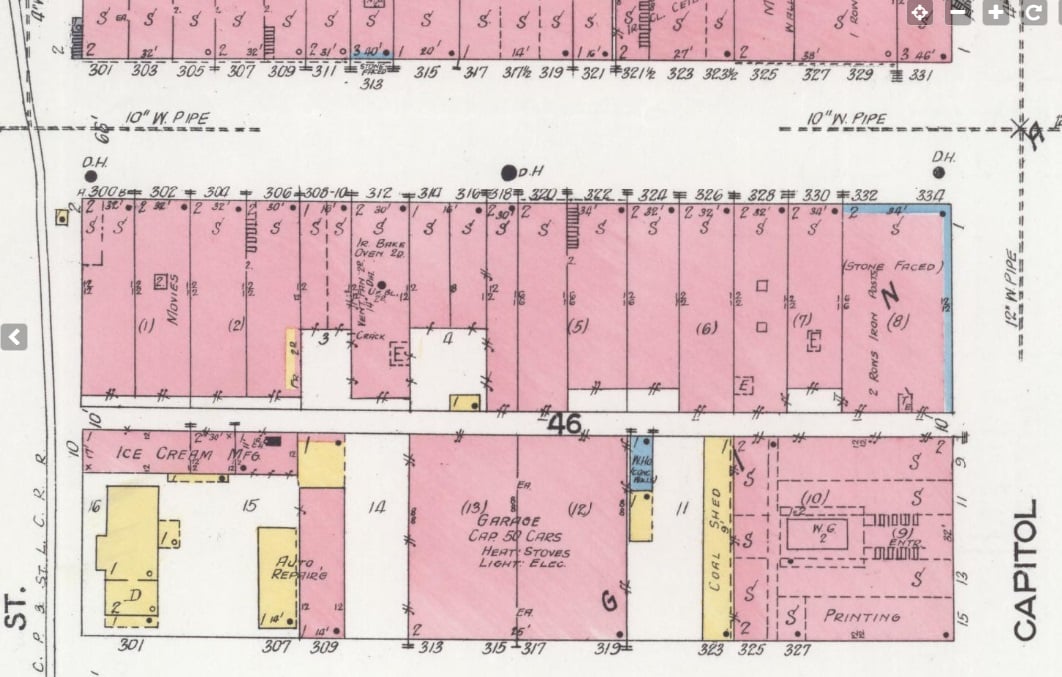
Charles died of a sudden heart attack while at work in his store on Saturday, 20 Dec. 1941, after which his youngest son Robert E. “Boy” Gehrig (1900-1978) took over Gehrig’s Cigar Store and ran it for the rest of its existence. The obituary for Charles Gehrig was the leading front page headline store in the Pekin Daily Times that day, and the newspaper also published a Pekin City Council resolution that the council passed unanimously in tribute to Gehrig’s civic-mindedness.
One hundred and six years after the founding of Gehrig’s Cigar Store, the family business went up in smoke on 29 May 1971, when a devastating fire ripped through the buildings on the south side of the lower 300 block of Court Street. The fire was started by an explosion at Gluba Jewelry Store, which had just moved to its Court Street location two weeks prior. The blaze caused $600,000 in damage, and not only destroyed Gluba Jewelry, but also gutted Gehrig’s Cigar Store (probably consuming the store’s wooden Indian), Western Auto Store, Dean’s Barber Shop, Pekin Floor Covering, the Empire Buffet, and Shamrock Restaurant, and severely damaged the Borden Co. building.
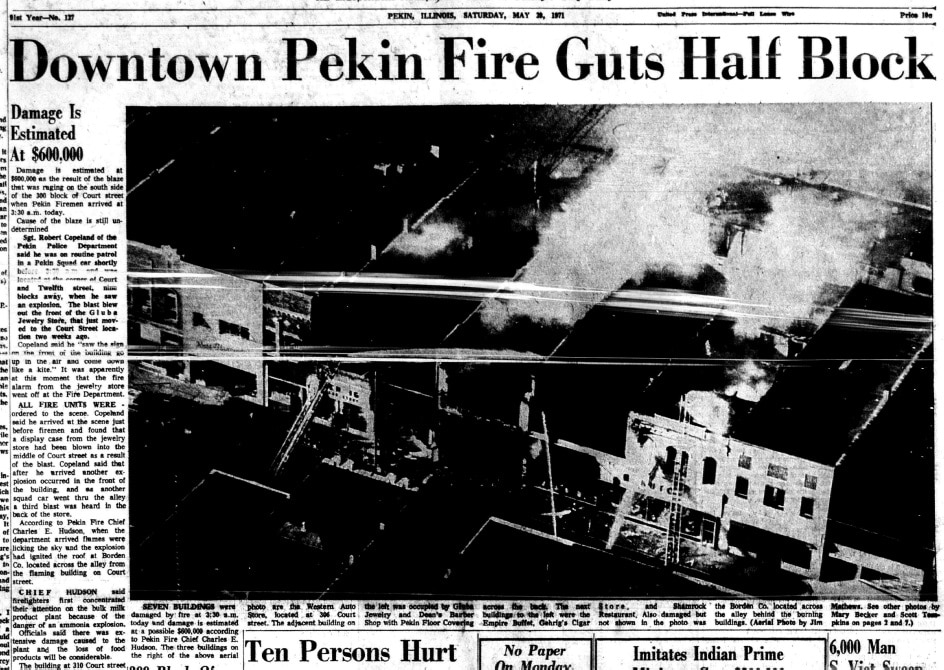
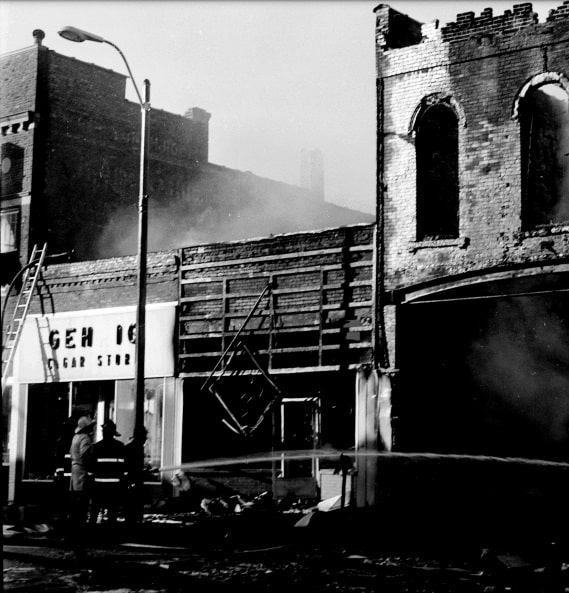
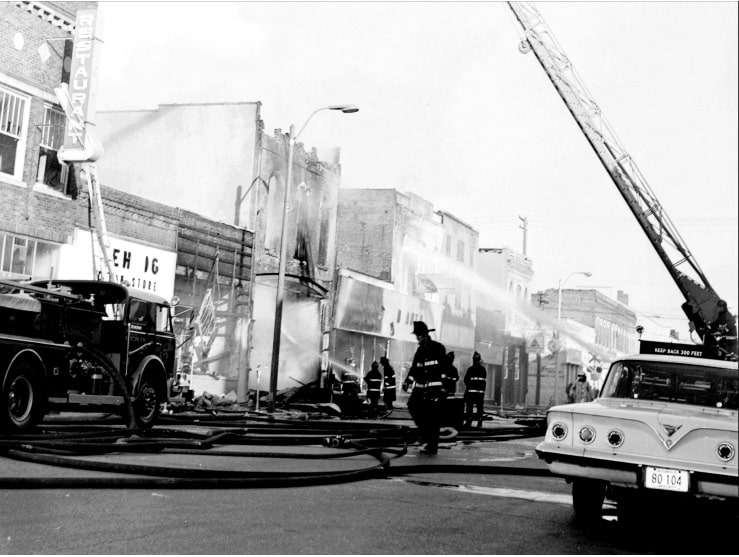
The 1974 Pekin Sesquiscentennial volume, page 110, provides this brief account of the 29 May 1971 fire:
“The south side of the 300 block of Court was again gutted by fire on May 29, 1971. $600,000 damage was sustained and seven buildings damaged in the blaze, begun by an explosion which blew out the front of a structure that housed Gluba Jewelry, Dean’s Barbershop, Pekin Floor Covering, and Western Auto (which suffered the most substantial loss). Another Pekin landmark was destroyed when the Gehrig Cigar Store succumbed to the flames, a loss especially lamented by cigar and pipe lovers throughout the city, as the home of one of their favorite suppliers was never rebuilt. Shamrock Restaurant, the Empire Buffet, and Borden’s were also involved.”
At the time of the fire, Robert Gehrig was 71 years old. The loss of the store ended the last of Pekin’s old-time cigar stores, and effectively put Robert into retirement. The following year his health took a turn for the worse. He died at his home at 1509 N. Eighth St. on 22 Jan. 1978 and was buried in Lakeside Cemetery. The last member of the Gehrig family in Pekin, Robert’s daughter Roberta, passed away in 2009.
